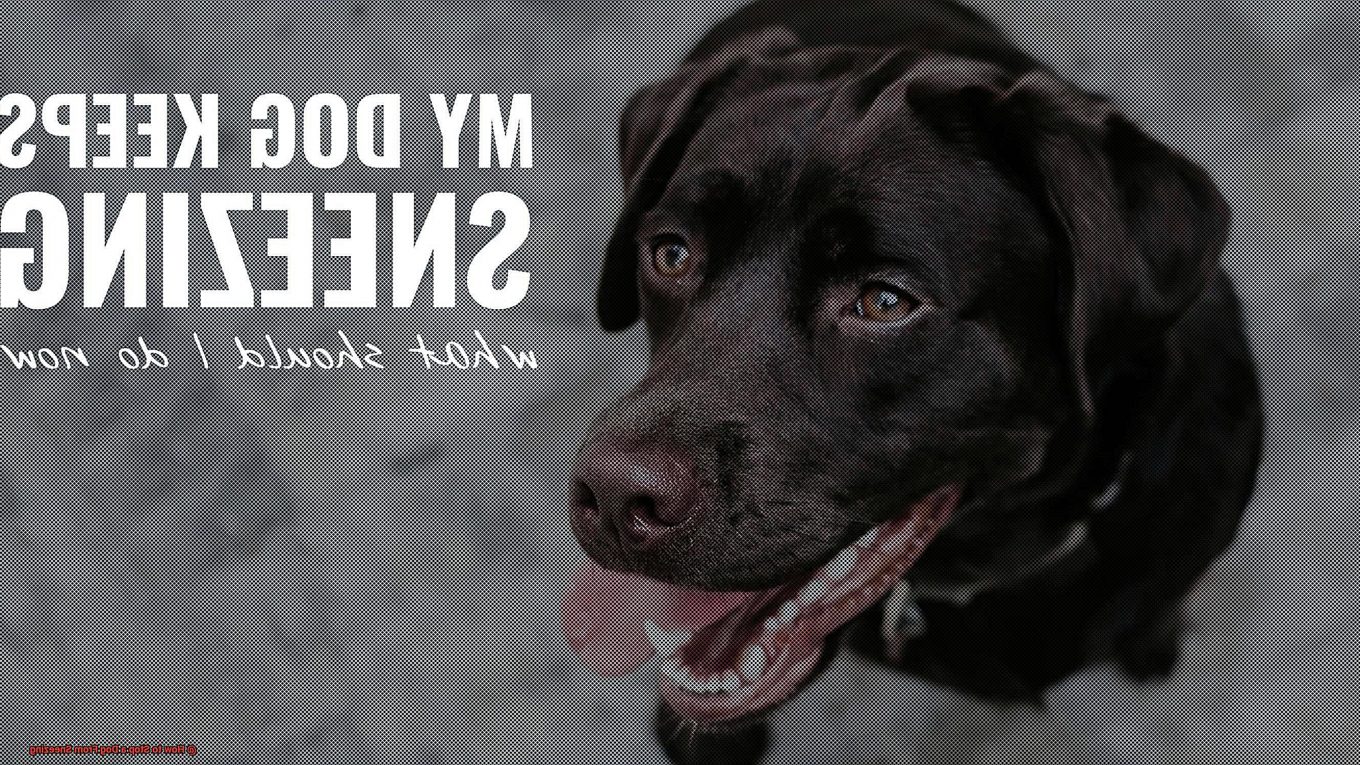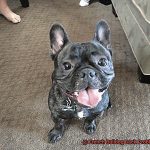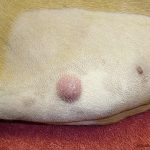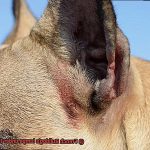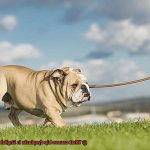How to Stop a Dog From Sneezing?
Is your dog sneezing nonstop? It’s a common problem that can be difficult to solve. Don’t worry, though; there are ways you can help your pup avoid those pesky sneezes and get back to being their healthy, happy self.
In this blog post, we’ll discuss the causes of sneezing in dogs and how to prevent it. We’ll look at common causes such as allergies and viruses, as well as natural remedies for treating symptoms. Plus, we’ll have tips for preventing future sneezing episodes.
So if your furry friend is having issues with persistent sneezing, read on! We’ve got all the information you need to understand why they’re having this issue and what you should do about it. From determining their sneeze triggers to finding solutions that work best for them, it’s all here!
Why Do Dogs Sneeze?
Contents
- 1 Why Do Dogs Sneeze?
- 2 How to Stop a Dog From Sneezing
- 3 Home Remedies To Stop A Dog From Sneezing
- 4 Medications to Prevent Dog Sneezing
- 5 Dogs That Sneeze While Playing
- 6 How to Distinguish Between Normal and Abnormal Sneezing in Dogs
- 7 How Often Should Pet Owners Take Their Dog To The Vet For Sneezing?
- 8 How Can Pet Owners Reduce Their Dog’s Exposure To Environmental Irritants?
- 9 When to Consult a Veterinarian About a Dog’s Sneezing
- 10 Tips For Preventing Your Dog From Sneezing Unnecessarily
- 11 Conclusion
There are plenty of possible explanations. From allergies to irritants to infections, let’s take a look at why your dog may be sneezing.
Allergies are the most common cause of sneezing in dogs. Dust, pollen, mold, and other environmental allergens can all trigger a reaction in your pup. If you notice your pup sneezing more when they’re outside, it’s likely they’re responding to something in the air.
Smoke and strong odors can also cause a dog to sneeze. If you’ve been burning incense or candles recently, this could be the culprit!
Infections may also result in dog sneezes. Bacterial and viral infections can both cause a pup to start sniffling. If your pup is showing any signs of sickness, such as coughing or fever, it’s time for a trip to the vet.
Lastly, there’s always the possibility that something has gotten stuck up your dog’s nose! Foreign objects like sticks or grass can cause them to start sneezing if they get stuck inside their nostrils. So if your pup is running around outside, keep an eye on them; you never know what they might find.
How to Stop a Dog From Sneezing
Dogs sneeze for a variety of reasons, but the most common is to clear their nasal passages of irritants or allergens. Whether it’s due to allergies, a cold or virus, or environmental factors such as dust or smoke, understanding the cause of your pup’s sneezing can help you take the necessary steps to stop it. Here are five ways to help prevent your dog from sneezing:
Allergy Testing
A veterinarian may recommend allergy testing to determine what is triggering the sneezing. This will help identify any allergens in your home that could be causing your pup to sneeze and allow you to take steps to reduce them.
Cleanliness
Keeping your dog’s environment clean and free of allergens can help reduce sneezing. This includes vacuuming regularly, changing air filters often, and dusting surfaces that may be harboring dust or other particles.
To prevent allergens from building up, you should also bathe your dog regularly and wipe their bedding regularly. In addition, using a humidifier in your house can help keep the air moist and reduce nasal passage irritations.
Diet
If allergies are causing your dog’s sneezing, you may have to make changes to their diet. A veterinarian can recommend a balanced diet for your dog that will help reduce inflammation and eliminate allergies. This could include switching them to an all-natural diet devoid of ingredients or adding omega-3 fatty acids to them.
Rinse
Nasal Rinse A veterinarian may recommend a nasal rinse for dogs that are suffering from persistent sneezing as a result of allergies of allergies. The cleanse helps reduce inflammation in the nasal passages by flushing out any irritants that may be causing the sneezing.
When using a nasal rinse on your dog, it’s important to follow the instructions carefully so you don’t accidentally hurt them in any way.
Medication
In some cases, you may need to give your furry friend medication prescribed by a vet if their sneezing persists despite other therapies.
These medications work by helping the body fight off allergens or viruses that may be causing the sneezing while also reducing inflammation and allergy symptoms.
When giving medications to your pet, it’s vital to ensure they are not mistakenly hurting them in any way.
Home Remedies To Stop A Dog From Sneezing
Sneezing can be a real nuisance for both you and your pup. Fortunately, there are some simple home remedies that may help reduce your pup’s sneezing episodes.
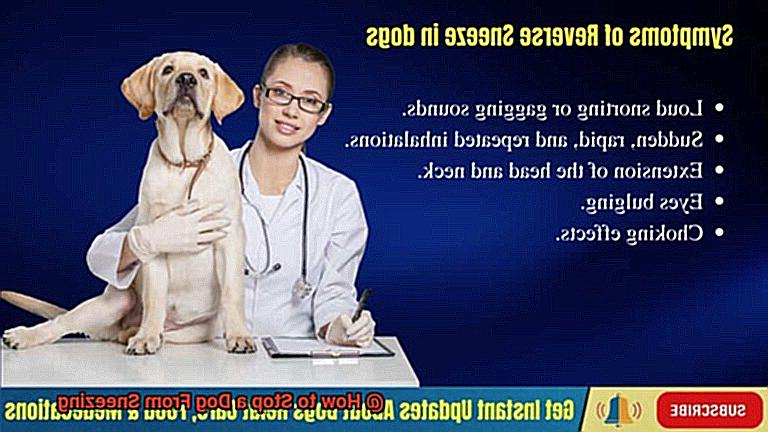
Start by using a humidifier in the room where your dog spends most of its time. This will keep the air moist and help prevent dry air from irritating their nose. You can also make a saline solution at home by mixing one teaspoon of salt with one cup of warm water. This can be used to rinse out your pup’s nose and remove any irritants that may be causing them to sneeze.
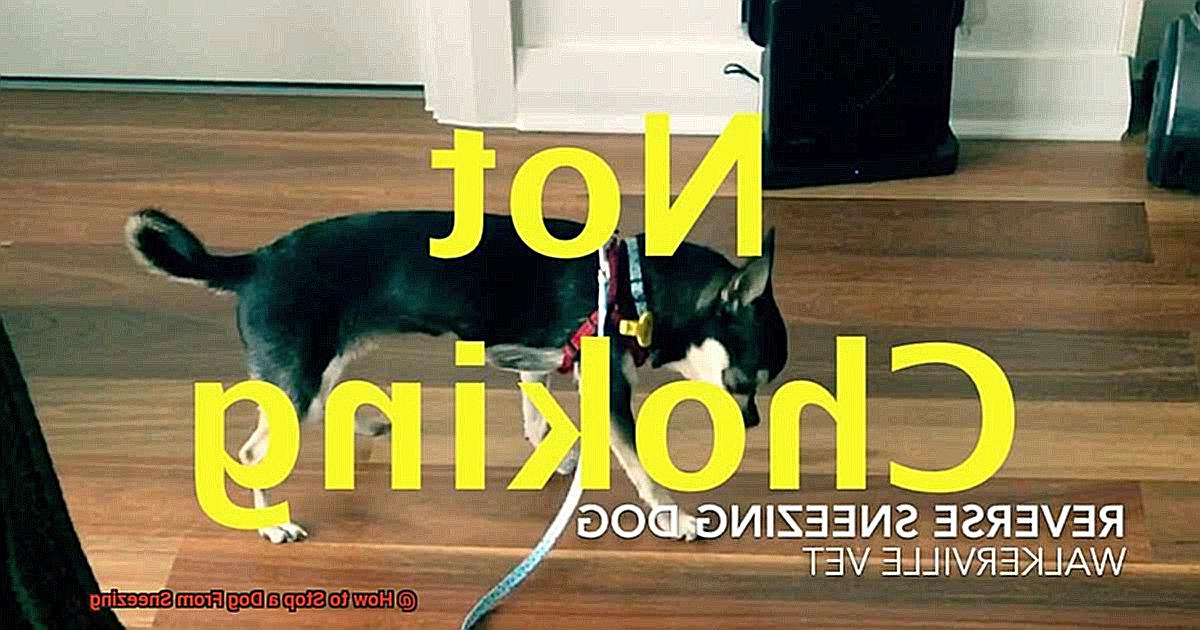
If your pup is still sneezing, try giving them a steam bath. This will open up their nasal passages and allow them to breathe easier, which may reduce their sneezing episodes.
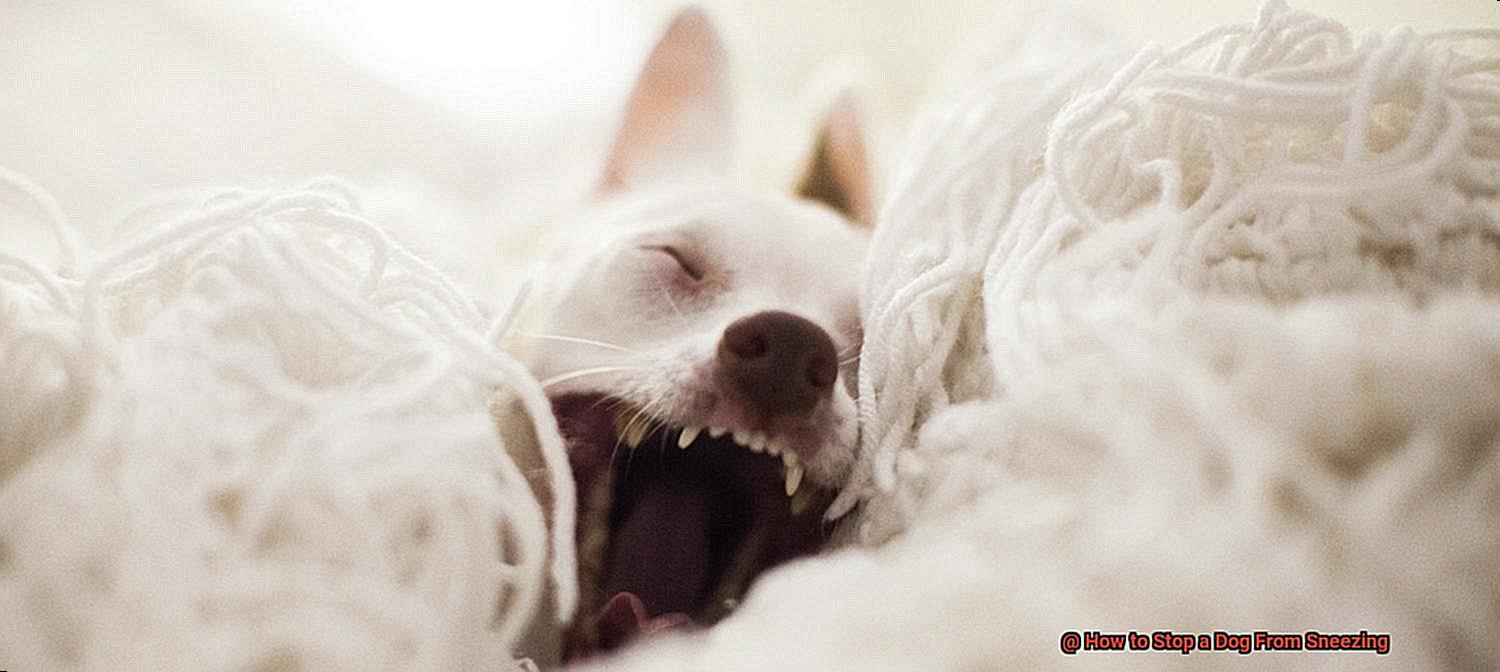
Additionally, you can use essential oils such as eucalyptus or peppermint oil in a diffuser near where they sleep or spend most of their day. The aroma of these oils can soothe an irritated nose and provide relief from sneezing.
Medications to Prevent Dog Sneezing
It’s important to consult with your veterinarian to determine the best treatment options. In some cases, medications can be used to prevent a dog from sneezing.
The following are examples of drugs that can be used to treat sneezing in dogs: antihistamines, decongestants, and corticosteroids. These medications are typically prescribed to address the underlying cause of the sneezing, such as allergies or infections. Before beginning any medication for your dog’s sneezing, it’s essential to discuss any potential side effects with your vet.
It’s also important to follow the dosage instructions carefully and not give your dog more than what is recommended by your veterinarian. If you’re uncertain how much medication to give your pup or if you have any questions regarding their treatment plan, don’t hesitate to call your vet right away.
Dogs That Sneeze While Playing
It’s actually quite common and usually nothing to worry about. Dogs can sneeze due to the excitement of the game, which is usually harmless. However, if your pup’s sneezing persists or is accompanied by other symptoms like coughing, difficulty breathing, or nasal discharge, it may be an indication of an underlying medical issue, and you should consult with your veterinarian.
If there doesn’t appear to be an underlying medical issue causing your pup’s sneezing while playing, there are some steps you can take to help reduce the frequency and intensity of their sneezing.
Try reducing the intensity of playtime activities such as roughhousing or excessive jumping, as well as environmental triggers such as pollen or dust by keeping windows closed and vacuuming regularly.
Additionally, make sure your pup gets plenty of rest between play sessions so they don’t get overly excited and trigger a sneeze attack.
How to Distinguish Between Normal and Abnormal Sneezing in Dogs
To distinguish between normal and abnormal sneezing in dogs, pet owners should pay attention to any accompanying symptoms that may indicate a more serious underlying issue.
If your dog’s sneezing is accompanied by nasal discharge or difficulty breathing, it’s important to take them to the vet for further evaluation right away.
Additionally, if you notice any changes in your dog’s behavior or attitude, this could be a sign that they are suffering from an illness that requires medical attention.
How Often Should Pet Owners Take Their Dog To The Vet For Sneezing?
If approved by the vet, it is recommended that pet owners visit their dog for regular check-ups.
During these check-ups, your veterinarian will be able to determine if there are any underlying health conditions triggering the sneezing and provide appropriate medical care if necessary.
In addition, pet owners must keep an eye on their pet’s behavior and attitude in order to spot any changes that may indicate an underlying medical condition that necessitates medical attention.
How Can Pet Owners Reduce Their Dog’s Exposure To Environmental Irritants?
To minimize the chances of your dog becoming allergic due to environmental factors such as dust and pollen, it’s important for pet owners to take steps such as vacuuming regularly and keeping their bedding clean.
In addition, if you suspect your pet has allergies, then it may be helpful for them to wear protective clothing when outdoors or during times when allergen levels are high (such as during spring).
Lastly, make sure you’re taking all necessary safety precautions when cleaning up after your pet in order to ensure both yours and their well-being!
When to Consult a Veterinarian About a Dog’s Sneezing
Sneezing may seem like an innocuous symptom in dogs, but if it persists or worsens, it could be indicative of a more serious health issue. When your pup’s sneezing isn’t diminishing, it’s time to consult a veterinarian for help.
The cause of sneezing can range from foreign objects lodged in the nose to allergies, respiratory infections, tumors, polyps, or dental disease. To accurately diagnose the problem and provide appropriate treatment, a vet will perform diagnostic tests such as X-rays and blood tests.
It’s also important to seek veterinary care if your dog’s sneezing is accompanied by other symptoms such as coughing, nasal discharge, fever, lethargy, or loss of appetite.
Regular vaccinations and parasite prevention are also key in helping prevent respiratory infections that may lead to sneezing.
Tips For Preventing Your Dog From Sneezing Unnecessarily
Here are some tips to prevent your pup from sneezing unnecessarily.
Check that your dog’s vaccinations are up to date.
Vaccinations can help protect your pooch from infectious diseases and reduce the risk of sneezing due to viruses or bacteria. Keeping them healthy and minimizing their sneezing is key.
Keep your dog away from allergens
Allergens such as dust, pollen, mold, and smoke can cause a dog to sneeze. If they’re allergic to any of these, try to avoid exposing them as much as possible.
Make sure they have access to clean air.
Dogs that are kept in small areas or cages with poor ventilation may be more prone to sneezing due to a buildup of dust and other particles in the air. Take them for regular walks or play outside so they get plenty of fresh air.
Keep their noses clear of debris
Debris such as dirt, grass, and other particles can irritate a dog’s nose and cause them to sneeze unnecessarily. Wiping down their nose with a damp cloth regularly will help keep it clean and free of debris.
Monitor the temperature in your home
If it’s too hot or too cold in your home, this could cause your pet to start sneezing too often as their nasal passages become dry or irritated by the extreme temperatures. Make sure both you and your pup stay comfortable by maintaining an ideal temperature inside the house!
Make sure they have access to plenty of water
Staying hydrated is essential for all animals, including dogs! Making sure they always have access to fresh water will help keep their nasal passages moist, which can reduce the amount of sneezing they do unnecessarily.
Conclusion
Sneezing in dogs is a common problem and can be difficult to diagnose. Allergies, irritants, viruses, and foreign objects stuck in their nose can all be culprits. Fortunately, there are ways to help your pup avoid those pesky sneezes and return to health.
Knowing the cause of your dog’s sneezing will help you take the right action to prevent it. If symptoms persist despite other treatments, consider changes to their diet or medications prescribed by a specialist. Additionally, simple home remedies such as humidifiers and steam baths may help minimize episodes.
It’s important to determine between normal and abnormal sneezing in dogs; if yours is accompanied by nasal discharge or difficulty breathing, bring them to the vet for further examination right away.
To prevent future sneezes, make sure they’re up-to-date on vaccinations and keep them away from allergens as often as possible. Reduce playtime games and close windows when allergen levels are high (for example, in the spring). Finally, ensure their nasal passages remain moist with plenty of water.
